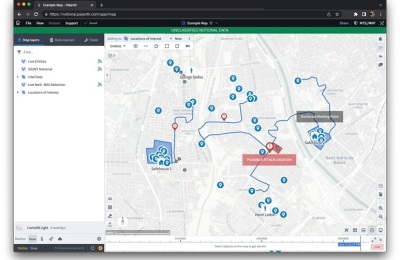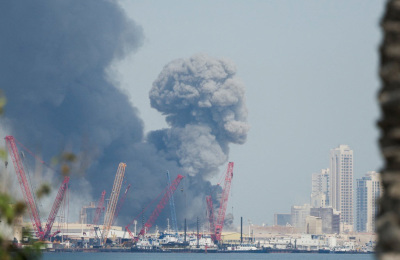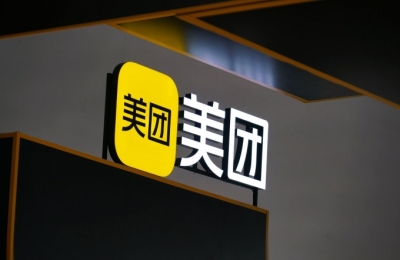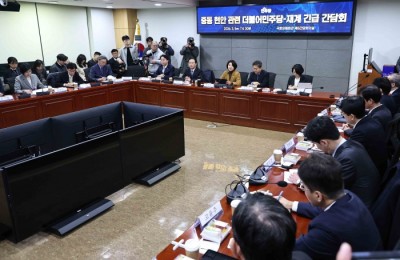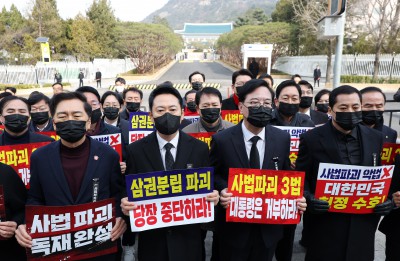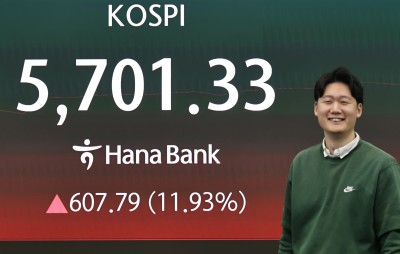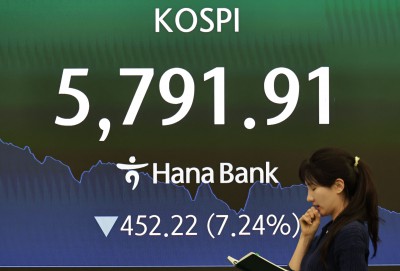다음은 신용평가사 무디스가 22일 발표한 글로벌 자본시장 영업을 영위하는 주요 15개은행에 대한 등급 강등 발표문이다.
Moody's downgrades firms with global capital markets operations
Global Credit Research - 21 Jun 2012
Actions conclude review initiated on 15 February 2012
New York, June 21, 2012 -- Moody's Investors Service today repositioned the ratings of 15 banks and securities firms with global capital markets operations. The long-term senior debt ratings of 4 of these firms were downgraded by 1 notch, the ratings of 10 firms were downgraded by 2 notches and 1 firm was downgraded by 3 notches. In addition, for four firms, the short-term ratings of their operating companies were downgraded to Prime-2. All four of those firms also now have holding company short-term ratings at Prime-2. The holding company short-term ratings of another two firms were downgraded to Prime-2 as well.
"All of the banks affected by today's actions have significant exposure to the volatility and risk of outsized losses inherent to capital markets activities", says Moody's Global Banking Managing Director Greg Bauer. "However, they also engage in other, often market leading business activities that are central to Moody's assessment of their credit profiles. These activities can provide important 'shock absorbers' that mitigate the potential volatility of capital markets operations, but they also present unique risks and challenges." The specific credit drivers for each affected firm are summarized below.
Today's rating actions conclude the review initiated on 15 February 2012 when Moody's announced a ratings review prompted by its reassessment of the volatility and risks that creditors of firms with global capital markets operations face. In the past, these risks have led many institutions to fail or to require outside support, including several firms affected by today's rating actions. Today's actions, however, reflect not only the credit implications of capital markets operations. They also reflect (i) the size and stability of earnings from non-capital markets activities of each firm, (ii) capitalization, (iii) liquidity buffers, and (iv) other considerations, including, as applicable, exposure to the operating environment in Europe, any record of risk management problems, and risks from exposure to US residential mortgages, commercial real estate or legacy portfolios.
OVERVIEW OF TODAY'S RATING ACTIONS
Moody's has taken action on the following holding company ratings:
Bank of America Corporation
Long-term senior unsecured debt to Baa2 from Baa1, outlook negative; Short-term P-2 affirmed
Barclays plc
Long-term issuer rating to A3 from A1, outlook negative; Short-term to P-2 from P-1
Citigroup Inc.
Long-term senior debt to Baa2 from A3, outlook negative; short-term P-2 affirmed
Credit Suisse Group AG
Provisional senior debt to (P)A2 from (P)Aa2, outlook stable; Provisional Short-term (P)P-1 affirmed
The Goldman Sachs Group, Inc.
Long-term senior unsecured debt to A3 from A1, outlook negative; Short-term to P-2 from P-1
HSBC Holdings plc
Long-term senior debt to Aa3 from Aa2, outlook negative; Provisional Short-term (P)P-1 affirmed
JPMorgan Chase & Co.
Long-term senior debt to A2 from Aa3, outlook negative; Short-term P-1 affirmed
Morgan Stanley
Long-term senior unsecured debt to Baa1 from A2; outlook negative; Short-term to P-2 from P-1
Royal Bank of Scotland Group plc
Long-term senior debt to Baa1 from A3, outlook negative; Short-term P-2 affirmed
Moody's has taken action on the following operating company ratings:
Bank of America, N.A.
Long-term deposit rating to A3 from A2, outlook stable; Short-term to P-2 from P-1
Barclays Bank plc
Long-term issuer rating to A2 from Aa3, outlook negative; Short-term P-1 affirmed
BNP Paribas
Long-term debt and deposit rating to A2 from Aa3; outlook stable; Short-term P-1 affirmed
Citibank, N.A.
Long-term deposit rating to A3 from A1, outlook stable; Short-term to P-2 from P-1
Credit Agricole S.A.
Long-term debt and deposit rating to A2 from Aa3, outlook negative; Short-term P-1 affirmed
Credit Suisse AG
Long-term deposit and senior debt rating to A1 from Aa1, outlook stable; Short-term P-1 affirmed
Deutsche Bank AG
Long-term deposit rating to A2 from Aa3, outlook stable; Short-term P-1 affirmed
Goldman Sachs Bank USA
Long-term deposit rating to A2 from Aa3, outlook stable; Short-term P-1 affirmed
HSBC Bank plc
Long-term deposit rating to Aa3 from Aa2, outlook negative; Short-term P-1 affirmed
JPMorgan Chase Bank, N.A.
Long-term deposit rating to Aa3 from Aa1, outlook stable; Short-term P-1 affirmed
Morgan Stanley Bank, N.A.
Long-term deposit rating to A3 from A1, outlook stable; Short-term to P-2 from P-1
Royal Bank of Canada
Long-term deposit rating to Aa3 from Aa1, outlook stable; Short-term P-1 affirmed
Royal Bank of Scotland plc
Long-term deposit rating to A3 from A2; outlook negative; Short-term to P-2 from P-1
Societe Generale
Long-term debt and deposit to A2 from A1; outlook stable; Short-term P-1 affirmed
UBS AG
Long-term debt and deposit to A2 from Aa3, outlook stable; Short-term P-1 confirmed.
RATINGS RATIONALE -- STANDALONE CREDIT DRIVERS
Moody's assessment of each firm's standalone credit profile led to the following relative positioning of the firms:
--FIRST GROUP
The first group of firms includes HSBC, Royal Bank of Canada and JPMorgan. Capital markets operations (and the associated risks) are significant for these firms. However, these institutions have stronger buffers, or 'shock absorbers,' than many of their peers in the form of earnings from other, generally more stable businesses. This, combined with their risk management through the financial crisis, has resulted in lower earnings volatility. Capital and structural liquidity are sound for this group, and their direct exposure to stressed European sovereigns and financial institutions is contained.
Firms in this group now have standalone credit assessments of a3 or better (on a scale from aaa, highest, to c, lowest). Their main operating companies now have deposit ratings of Aa3, and their holding companies, where they exist, have senior debt ratings between Aa3 and A2. Their short-term ratings are Prime-1 at both the operating and holding company level.
--SECOND GROUP
The second group of firms includes Barclays, BNP Paribas, Credit Agricole SA (CASA), Credit Suisse, Deutsche Bank, Goldman Sachs, Societe Generale and UBS. Many of these firms rely on capital markets revenues to meet shareholder expectations. Their relative position reflects a combination of differentiating and sometimes adverse factors. Capital markets operations constitute a large part of the overall franchises for Credit Suisse, Goldman Sachs, Barclays, and Deutsche Bank, but less so for UBS, Societe Generale, BNP Paribas and CASA's cooperative group, Groupe Credit Agricole.
Other factors contribute to the relative positioning. For example, Barclays, BNP Paribas and Groupe Credit Agricole have, to varying degrees, relatively robust shock absorbers. Exposure to capital markets businesses is very high for Goldman Sachs, but this is balanced by a record of effective risk management. Barclays, BNP Paribas, Groupe Credit Agricole, and Deutsche Bank also have sizeable but varying degrees of exposure to weaker European economies. Some firms are relatively weak with regard to structural liquidity or reliance on wholesale funding.
Firms in this group now have standalone credit assessments of baa1 or baa2. Their deposit ratings range between A1 and A2, and their short-term ratings are Prime-1 at the operating company level. Their holding companies, where they exist, have senior debt ratings between A2 and A3 and short-term ratings between Prime-1 and Prime-2.
--THIRD GROUP
The third group of firms includes Bank of America, Citigroup, Morgan Stanley, and Royal Bank of Scotland. The capital markets franchises of many of these firms have been affected by problems in risk management or have a history of high volatility, while their shock absorbers are in some cases thinner or less reliable than those of higher-rated peers. Most of the firms in this group have undertaken considerable changes to their risk management or business models, as required to limit the risks from their capital markets activities. Some are implementing business strategy changes intended to increase earnings from more stable activities. These transformations are ongoing and their success has yet to be tested. In addition, these firms may face remaining risks from run-off legacy or acquired portfolios, or from noteworthy exposure to the euro area debt crisis.
Firms in this group now have standalone credit assessments of baa3. Their deposit ratings are A3 at the operating company level. Their holding companies, where they exist, have senior debt ratings between Baa1 and Baa2. Their short-term ratings are Prime-2 at both the operating and holding company level.
RATINGS RATIONALE - SENIOR DEBT AND DEPOSITS
Moody's systemic support assumptions for firms with global capital markets operations remain high, given their systemic importance, and have not been a key driver of today's rating actions. While Moody's recognizes the clear intent of governments around the world to reduce support for creditors, the policy framework in many countries remains supportive for now, not least because of the economic stress currently stemming from the euro area and the potential systemic repercussions of large, disorderly bank failures and the difficulty of resolving large, complex and interconnected institutions.
However, reflecting the view that government support is likely to become less certain and predictable over time, Moody's has assigned negative outlooks on certain supported ratings of entities affected by today's actions, particularly at the holding company level, as discussed in detail in the firm-specific summaries below. Moody's view on support considers efforts by policymakers globally to create resolution and bail-in regimes that allow for more flexible and limited support in a stress scenario.
RATINGS RATIONALE -- SUBORDINATED DEBT AND HYBRIDS
In addition, Moody's has today downgraded the subordinated debt and hybrid ratings of the firms whose senior debt ratings have been repositioned. The downgrades reflect the revised senior debt ratings and, in some cases, also the removal of systemic support assumptions from subordinated debt classes. In Moody's view, systemic support in many countries is no longer sufficiently predictable and reliable going forward to warrant incorporating systemic-support driven uplift into these debt ratings.
RATING IMPLICATIONS FOR SOME SUBSIDIARIES WILL BE ASSESSED SEPARATELY
Moody's has also today taken rating actions on a number of subsidiaries and legal entities of firms with global capital markets activities, as summarized below. However, for some other subsidiaries of firms included in today's announcement, Moody's will separately assess the impact of their parents' reduced credit strength.
RATING REVIEWS OF MACQUARIE AND NOMURA WERE CONCLUDED EARLIER
Of the 17 banks and securities firms with global capital market operations that were placed on review for downgrade in February, the reviews of two firms were concluded separately. (계속)







